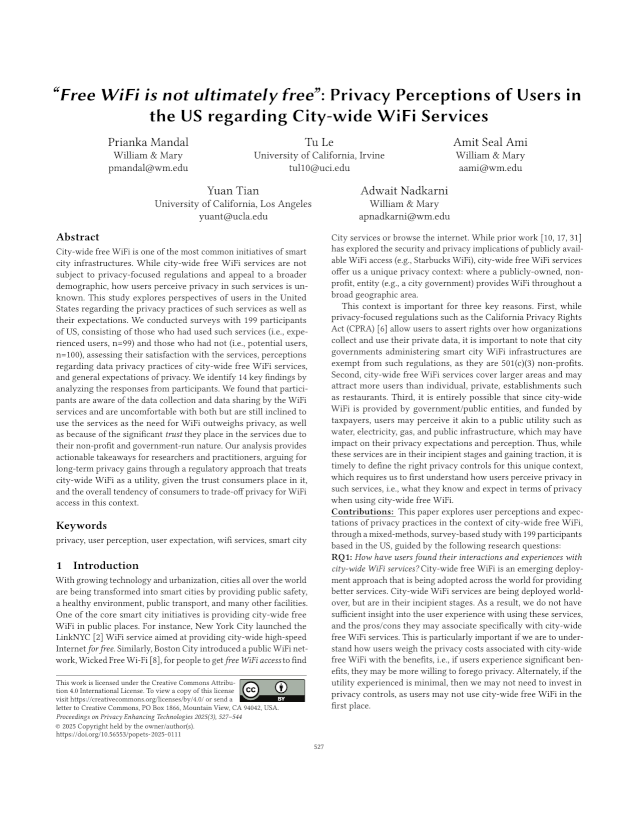"Free WiFi is not ultimately free": Privacy Perceptions of Users in the US regarding City-wide WiFi Services
Authors: Prianka Mandal (William & Mary), Tu Le (University of California, Irvine), Amit Seal Ami (William & Mary), Yuan Tian (University of California, Los Angeles), Adwait Nadkarni (William & Mary)
Volume: 2025
Issue: 3
Pages: 527–544
DOI: https://doi.org/10.56553/popets-2025-0111
Abstract: City-wide free WiFi is one of the most common initiatives of smart city infrastructures. While city-wide free WiFi services are not subject to privacy-focused regulations and appeal to a broader demographic, how users perceive privacy in such services is unknown. This study explores perspectives of users in the United States regarding the privacy practices of such services as well as their expectations. We conducted surveys with 199 participants of US, consisting of those who had used such services (i.e., experienced users, n=99) and those who had not (i.e., potential users, n=100), assessing their satisfaction with the services, perceptions regarding data privacy practices of city-wide free WiFi services, and general expectations of privacy. We identify 14 key findings by analyzing the responses from participants. We found that participants are aware of the data collection and data sharing by the WiFi services and are uncomfortable with both but are still inclined to use the services as the need for WiFi outweighs privacy, as well as because of the significant trust they place in the services due to their non-profit and government-run nature. Our analysis provides actionable takeaways for researchers and practitioners, arguing for long-term privacy gains through a regulatory approach that treats city-wide WiFi as a utility, given the trust consumers place in it, and the overall tendency of consumers to trade-off privacy for WiFi access in this context.
Keywords: privacy, user perception, user expectation, wifi services, smart city
Copyright in PoPETs articles are held by their authors. This article is published under a Creative Commons Attribution 4.0 license.

